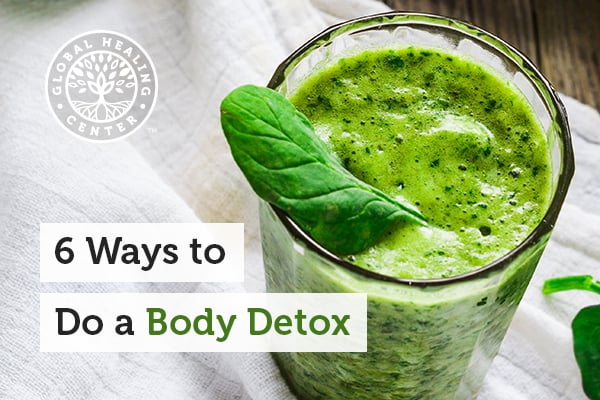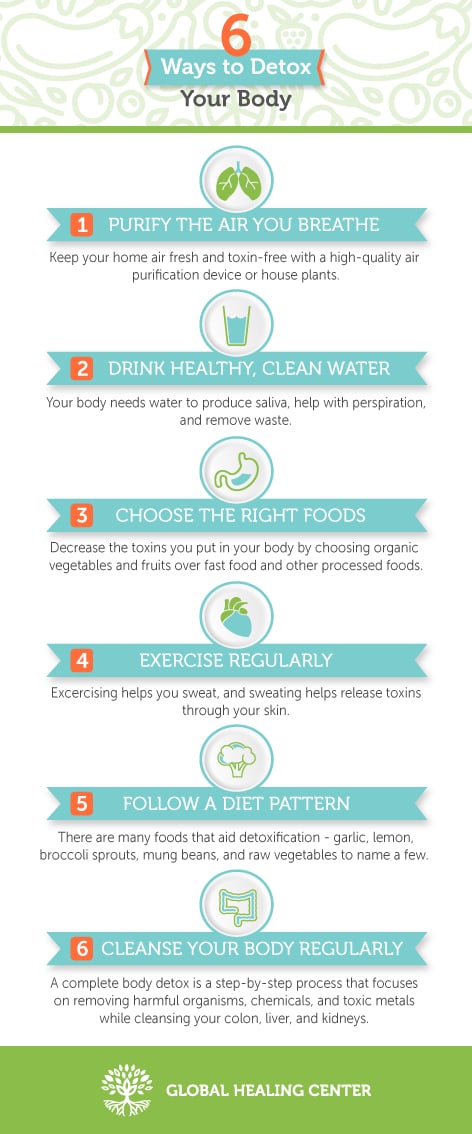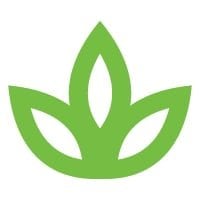
If you follow this website, you know that detoxing is a subject of huge importance to us. In fact, performing regular body cleanses and detoxes are a core principle of my beliefs on health and healing. I talk about them so much that I sometimes take for granted that we're all on the same page. Maybe I should explain myself for the benefit of new readers.
What exactly is a detox? Simply put, a detox is a process in which a person makes lifestyle changes to clear their body of toxins. These lifestyle changes typically involve abstaining from certain harmful things and optimizing body processes. Some changes are temporary, such as following a cleansing diet, others are permanent.
I should also explain my use of the term “toxins.”
What are Toxins?
Toxins are any substance that can be poisonous or cause negative health effects. “Toxin” refers to all the metals, chemicals, pollutants, artificial food ingredients, pesticides, and poisons that cause the body harm.[1] “Toxin” is a very broad term and it’s even, unfortunately, become a bit of a buzzword to some. Artificially created chemicals can be toxins, but naturally-occurring substances can be toxic, too. Arsenic is a natural toxin. Technically, so is cobra venom (though you’re less likely to find this contaminating your town’s water supply).
We are in constant contact with harmful organisms and pollutants. They’re in our water, in our food, and in the air we breathe; it’s very difficult to get away from them. The source of many health issues is the toxins that have built up in our bodies over the years.[2, 3, 4]
There is no practical way to protect yourself from all the toxins in the environment. Fortunately, there are ways to counteract some toxins and pollutants. Your body’s natural detoxification processes exist to deal with the ones we can’t avoid. You can help your body perform these processes with the help of regular cleansing.
First, let’s understand the natural ability we have to cleanse ourselves.
The Body and Detoxification
I try my best to educate people that the human body has a natural ability to detoxify itself. In fact, the body has several systems in place for removing waste. The excretory system plays the largest role in detoxification. The most obvious job of this system is defecation and urination. The main organs that compose the excretory system are the skin, liver, lungs, large intestine, and kidneys.[5]
You may be surprised to learn that your skin is part of your excretory system, but it's true — the skin aids in elimination through the sweat glands. The purpose of sweat is to regulate body temperature, but it's a multifunctional system. When sweat passes through your sweat glands, it takes toxins with it.[6]
The roles of the other organs are just as important. It’s the liver’s job to filter and excrete waste, hormones, drugs, and other foreign substances.[7] The lungs help remove carbon dioxide (the waste gas resulting from breathing).[8] The large intestine has several important jobs. It absorbs water and remaining nutrients from food. It also converts waste into stool to be expelled from the body through defecation.[9] The kidneys filter the blood and help remove waste from the body through urination.[10]
The entire body relies on this system to live a healthy life. Your body is detoxifying itself all the time, around the clock, 24/7. Even your brain flushes out toxins while you sleep.[11] It’s essential to take care of these organs and allow them to do their job.
6 Ways To Detox Your Body
1. Choose the Right Foods
One of the best things you can do to support your body’s detoxification process is to lighten its load and decrease the toxins you put in your body in the first place. Choose organic vegetables and fruits over fast food and other processed foods. GMO products and pesticide-contaminated foods add harmful toxins to your diet. Avoid them.
2. Exercise and Meditation
Exercise and meditation help maintain a healthy body. Exercising helps you sweat, and sweating helps release toxins through your skin. Studies have found trace amounts of arsenic, cadmium, lead, and mercury in sweat.[6] Meditation helps clear your mind and reduce stress. Stress can be as toxic to your health as chemicals. A troubled mind can cause the physical body to function poorly.
3. Diet
Detoxifying your body is not only about what you avoid, but also about what you consume. Following a healthy diet can go a long way. There are also many foods that aid detoxification — garlic, lemon, broccoli sprouts, mung beans, and raw vegetables.
Many diets promote cleansing and detoxification. I follow and recommend an organic, variable, intermittent fasting diet but there are other options if that isn’t for you. You could also try a body detox diet. It’s a temporary cleanse consisting of only plant-based whole foods: fruits and vegetable, raw nuts, seeds, and sprouts. It’s a great strategy for detoxing the colon and liver.
Juicing is also helpful and is centered around consuming freshly-made fruit and vegetable juice — preferably organic.
4. Purify the Air You Breathe
Breathing clean air is another way to reduce your exposure to toxins. While you can’t control the whole environment, you can control the air in your home. Smoke, fumes, pet dander, mold, mildew, and microorganisms can make the air in your home more toxic than the air outside.
A high-quality air purification device is the best way to keep your air fresh and toxin-free. If a quality air purification device is out of your budget, get a few house plants instead; they're nature’s air fresheners. They help filter the air and remove toxins.[12]
5. Purify Your Body With Water
Water is possibly the most valuable tool for detoxifying your body. The body’s most basic functions require water.[13] Your body needs water to produce saliva, help with perspiration, and remove waste.[14]
When I say drink water, I do mean water, not coffee, or sports drinks, or soft drinks. If you’re one of those people that find the taste of water boring, try adding lemon or cucumber to your water.
6. A Complete Body Detox
A complete body detox is a step-by-step process that focuses on each organ involved in ridding the body of toxins. The program should focus on removing harmful organisms, chemicals, and toxic metals while cleansing your colon, liver, and kidneys. Cleansing the colon is an important part of any full body cleansing protocol. Our Colon Cleanse Program™ will help open up your main route of elimination and maximize your body's natural ability to cleanse itself.
A complete body detox is a long and committed process but can be especially rewarding. If you’ve never performed a detox, I recommend the 9 Step Body Cleanse. It’s a total body detox that will help you eliminate toxin accumulation and feel great.

References (14)
- "What You Know Can Help You - An Introduction to Toxic Substances." New York Department of Health. New York State, Oct. 2013. Web. 16 Mar. 2016.
- "Causes of Food Poisoning." Foodsafety.gov. U.S. Department of Health & Human Services, n.d. Web. 16 Mar. 2016.
- "National Biomonitoring Program: Toxins." Centers for Disease Control and Prevention. Centers for Disease Control and Prevention, 28 Dec. 2012. Web. 16 Mar. 2016.
- "Toxic Substances Portal: Asbestos." Agency for Toxic Substances and Disease Registry. Centers for Disease Control and Prevention, 3 Mar. 2011. Web. 16 Mar. 2016.
- "Reference Terms: Excretory System." ScienceDaily. ScienceDaily, n.d. Web. 16 Mar. 2016.
- Sears, Margaret E., Kathleen J. Kerr, and Riina I. Bray. "Arsenic, Cadmium, Lead, and Mercury in Sweat: A Systematic Review." Journal of Environmental and Public Health 2012 (2012): 184745. PMC. Web. 16 Mar. 2016.
- "Normal Liver Physiology." Brown University Division of Biology and Medicine. Brown University, n.d. Web. 16 Mar. 2016.
- "What Are the Lungs?" National Heart, Lung, and Blood Institute. National Institutes of Health, 17 July 2012. Web. 16 Mar. 2016.
- "Large Intestine (colon)." MedlinePlus. U.S. National Library of Medicine, 7 Dec. 2015. Web. 16 Mar. 2016.
- "Aging Changes in the Kidneys and Bladder: MedlinePlus Medical Encyclopedia." MedlinePlus. U.S. National Library of Medicine, 27 Oct. 2014. Web. 16 Mar. 2016.
- "Brain May Flush out Toxins during Sleep | National Institutes of Health (NIH)." National Institutes of Health. U.S. Department of Health & Human Services, 17 Oct. 2013. Web. 16 Mar. 2016.
- Claudio, Luz. "Planting Healthier Indoor Air." Environmental Health Perspectives 119.10 (2011): a426–a427. PMC. Web. 16 Mar. 2016.
- "Water - a Vital Nutrient." Better Health Channel. Department of Health & Human Services, State Government of Victoria, May 2014. Web. 16 Mar. 2016.
- "Water in Diet: MedlinePlus Medical Encyclopedia." MedlinePlus. U.S. National Library of Medicine, 14 July 2015. Web. 16 Mar. 2016.
†Results may vary. Information and statements made are for education purposes and are not intended to replace the advice of your doctor. If you have a severe medical condition or health concern, see your physician.




